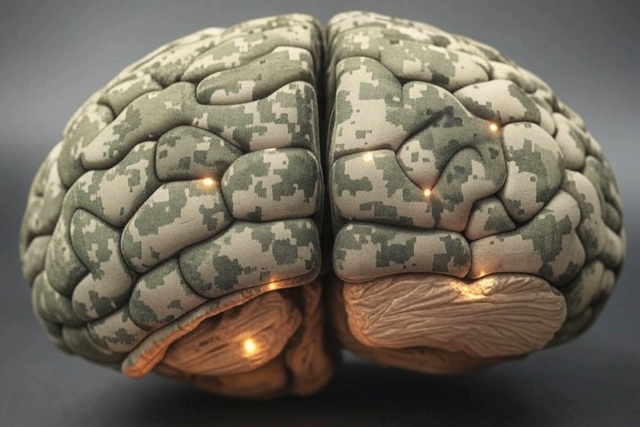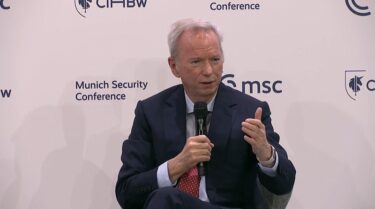DARPA is putting together a research program to enhance people’s cognitive performance after receiving only a few hours of sleep through non-invasive neuromodulation.
The US Defense Advanced Research Projects Agency (DARPA) issued a special notice on Thursday for its Reengineering Enabling Sleep Transitions in Operationally Restrictive Environments (RESTORE) program to maintain “cognitive performance under sleep-restricted conditions commonly faced by warfighters.”
“RESTORE aims to demonstrate precision control of sleep macro- and micro-architectures to optimize cognitive performance following 3-hour sleep restriction commonly occurring in combat operations”
DARPA, ‘RESTORE’ Program Special Notice, February 2025

According to the very brief special notice, “RESTORE will test the potential for recent advancements in non-invasive neuromodulation technologies and understanding of the importance of sleep micro-architectures to increase sleep efficiency for maintenance of cognitive performance under sleep-restricted conditions commonly faced by warfighters.”
During combat operations, warfighters may get an average of three hours of sleep while regular duty service members get around six hours or less.
Now, DARPA is looking to keep soldiers alert and performing optimally, even after getting only a few hours of sleep.
What makes the RESTORE program different than commercially available solutions, according to the special notice, is that “Current civilian treatments are predicated on helping an individual with a sleep disorder achieve healthy, normative sleep by reducing time to sleep onset and awakenings during sleep and with a goal of achieving a fully restorative 7-to-8-hour night sleep.”
Instead of focusing on achieving a fully restorative seven-to-eight hour night sleep, DARPA is focusing on full restoration after just three-to-six hours of sleep.
To get an idea of what non-invasive neuromodulation for sleep looks like, one company from Spain called NESA is “modulating the autonomic nervous system, enhancing sleep quality through neuromodulation of the retinohypothalamic pathways involved in the regenerative processes of sleep.”
The company also boasts that its technology “enhances physiological recovery in athletes, optimizing their performance throughout the season.”
The technical point of contact for DARPA’s RESTORE program is Dr. Greg Witkop, MD, who joined DARPA as a program manager in June 2021 after a 20-year career with the FBI, and before that he was an Army surgeon.
Dr. Witkop oversees five DARPA programs, including the Strengthening Resilient Emotions and Nimble Cognition Through Engineering Neuroplasticity (STRENGTHEN) program, which is aimed at modulating and optimizing brain circuits responsible for regulating emotions and cognitive flexibility to prevent the impacts of traumatic stress while decreasing symptoms associated with mental illness and suicide.
STRENGTHEN “seeks to prevent and heal brain changes caused by traumatic stress through advancing a neuro-mechanistic approach to assessing and optimizing CF [cognitive flexibility] and ER [emotional regulation].”
Dr. Witkop is also the the program manager for DARPA’s Rapid Eye Movement Restoration and Enhancement for Sleep-deprived Trauma adaptation (REM REST) program, which “aims to identify neural mechanisms and demonstrate the ability to modulate REM sleep that improves stress adaptation and traumatic memory consolidation.”
For REM REST, DARPA is looking for proposals that can “evaluate the mechanistic relationship with stress adaptation, traumatic memory consolidation, and/or other related emotional health and psychological resilience outcomes.”
Another DARPA program that Dr. Witkop manages is the Neural Evidence Aggregation Tool (NEAT) program, which focuses on identifying people at risk of suicide and depression by “aggregating preconscious brain signals to determine what someone believes to be true.”
While mental health among soldiers is a serious issue for the Department of Defense, applications coming out of the NEAT program have the very real potential to give governments and corporations the ability to hack human beings at the preconscious level.
Speaking at the World Economic Forum (WEF) annual meeting in Davos in 2020, historian Dr. Yuval Noah Harari warned that humans were no longer mysterious souls, but rather hackable animals that could be monitored and controlled by public and private entities through such preconscious technology that DARPA is developing.
“Just imagine North Korea in 20 years where everybody has to wear a biometric bracelet, which constantly monitors your blood pressure, your heart rate, your brain activity 24 hours a day,” said Harari in his “How to Survive the 21st Century” speech.
“You listen to a speech on the radio by the ‘Great Leader,’ and they know what you actually feel — you can clap your hands and smile, but if you’re angry, they know you’ll be in the gulag tomorrow morning,” he added.
DARPA’s concentration on neurotech for enhancing cognitive abilities, regulating emotions, and dealing with stress and trauma are all aimed at hacking warfighter capabilities.
These programs look to public and private R&D in order to expand upon them for military use.
After going through military use, what sort of advantages could an individual, a company, or a government entity have if they were able to perform better on less sleep, were able to regulate their emotions and deal with PTSD more efficiently than all the rest, and could read people’s preconscious brain signals to determine if they believed something to be true or not?
What other applications, for good or ill, could be devised from these types of DARPA programs?
Image source: AI generated by Grok












